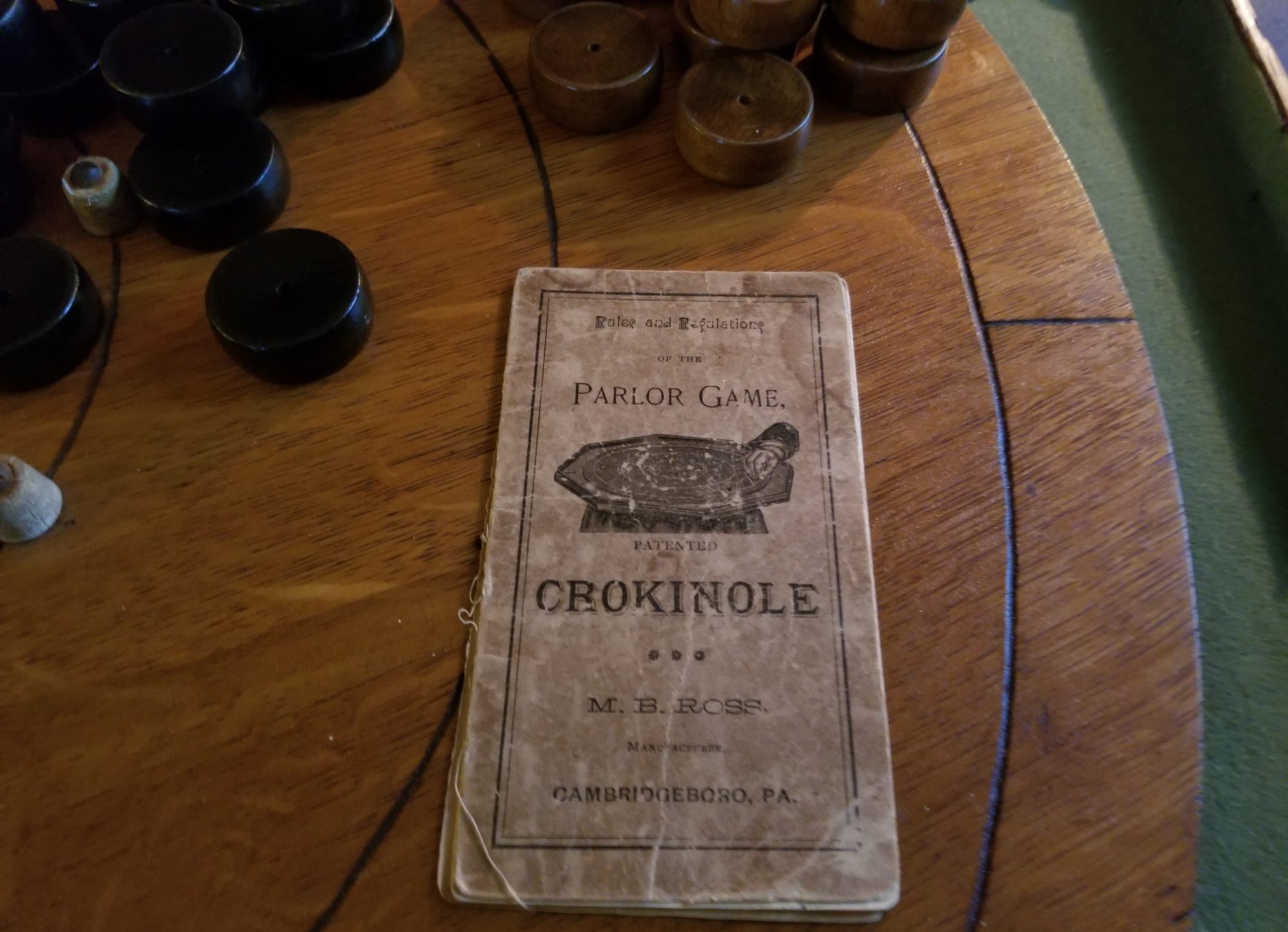Throughout much of its history, crokinole identifies as a wholesome, family-friendly and benign pastime. Even the Amish and Mennonites, who normally shun the wasting of time on trivialities, approve of it as a leisure activity. Most agree crokinole may produce bruised egos, perhaps a sore finger or at worst, a gouged floor from a chair leg, but as oral history suggests, the ‘One Cheek Rule’ was created to rectify even that flaw in the game.
Not everyone was convinced. The following piece from the Lebanon (PA) Daily News, January 22, 1891, presents a cynic’s view that such games produce violence and just might be the start down the path of degradation. We can hope that this may be cheeky in nature and satirical but given its origins from the Philadelphia Press and the period, the city still had some draconian measures in place, so we may need to take it at face value.
As you read, the reference to tiddlywinks might seem odd but in the late 19th century and the rise of the middle class and free time, socializing in one’s parlor around games like tiddlywinks and crokinole was quite common. Richard W. Tucker (http://tiddlywinks.org/history/tiddlywinks-the-classic-victorian-pastime-1996/) wrote an article on tiddlywinks and its role as an adult-oriented phenomenon during the Victorian Era. But even the anonymous author found fault with this game as a gateway to more harmful activities.
Another game mentioned, Jenkins, also known as Up Jenkins, was considered a game for social occasions, where the goal was to hide a coin under one’s hands by making distracting noise to muffle the sound of the coin when hitting the table. According to the author, this could do a number on the hands to the point where you could take on ‘Sullivan.’ A reference to John L. Sullivan, the heavyweight boxing champion of the period. But even he may not have been able to withstand the punishment of Jenkins or bare-flicking a crokinole disk since he was the first boxing champ that donned gloves. Jenkins still exists today as a drinking game.
The last game, ‘Brown, Jones and Robinson’ never came to fruition, but exists as a reference to the novel The Struggles Of Brown, Jones And Robinson by Anthony Trollope. This may be where the anonymous author tips his hand to the nature of his essay since The Struggles was a satirical piece. The unknown author may have been trying to conjure up some disingenuous Victorian outrage that even the Amish couldn’t muster. Or perhaps the author had the foresight to see a direct link between these games and the eventual evolution toward Twister or Grand Theft Auto.

